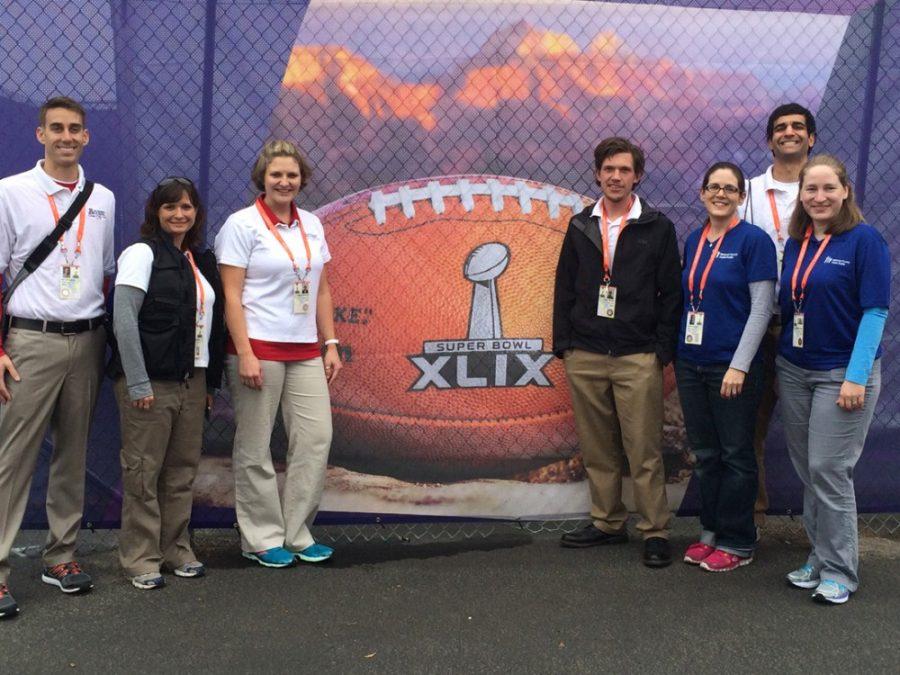Kristen Pogreba-Brown, an assistant professor of epidemiology at the UA, and a team of six others attended Sunday’s Super Bowl XLIX in Glendale, Ariz.
The Student Aid for Field Epidemiology Response Team took to the Super Bowl to conduct syndromic surveillance. The team consisted of three students from the UA’s Mel & Enid Zuckerman College of Public Health. Kristen Woodruff and Steve Barnes, a pair of public health graduate students, were among those on the team who attended the Super Bowl with the purpose of collecting data for the Maricopa County Department of Public Health.
With the outbreak of measles in the state of Arizona, public health specialists are taking preventative measures and attempting to inform the public of vaccinations.
“We are not too much more worried about measles at the Super Bowl really than anything else,” Pogreba said.
Measles is a disease whose symptoms are subtle and progressive. The symptoms and signs of measles include a fever around 101 degrees Fahrenheit, blurry or sore eyes, runny nose and a progressive rash.
Barnes added that those who are vaccinated “have almost nothing to worry about.”
“Most of the measles cases that we’ve identified thus far have been proceeded with,” Progreba said. “Measles is not community-wide at this point; it shouldn’t be any more of an issue, but that being said, we are still asking specifically about it.”
Pogreba also said that the students “have had semesters’ worth of training on how to investigate outbreaks [and] how to conduct interviews, so they have quite a bit of experience under their belts already.”
The data collected by Pogreba and her team on tablets was monitored in real time by the Maricopa Department of Public Health, in order to detect possible infectious diseases.
“Kristen [Pogreba] has done a pretty good job,” Barnes said, regarding the case of an infectious outbreak, “and all those people that are there, we’ve all been trained to be able to identify signs and symptoms.”
The team received further training the morning of the Super Bowl, which consisted of learning what to do under different situations. Woodruff said they were trained to “specifically ask about their exposures.”
She also expressed her concern about a possible spread of disease.
“I am more concerned about the people who are not vaccinated,” she said, “because … people come who are not vaccinated … are putting themselves and others at risk.”
Although measles is not at high risk at this point, Woodruff added that “the Super Bowl does intensify the possibility of spreading [measles] into a larger outbreak,” due to the number of people attending from around the country and then heading home afterward.
The SAFER team conducted interviews to ensure that the public was informed about the measles vaccination.
“If they do become exposed to it there are no symptoms; it’s asymptomatic,” Woodruff said.
_______________
Follow Terrie Brianna on Twitter.









